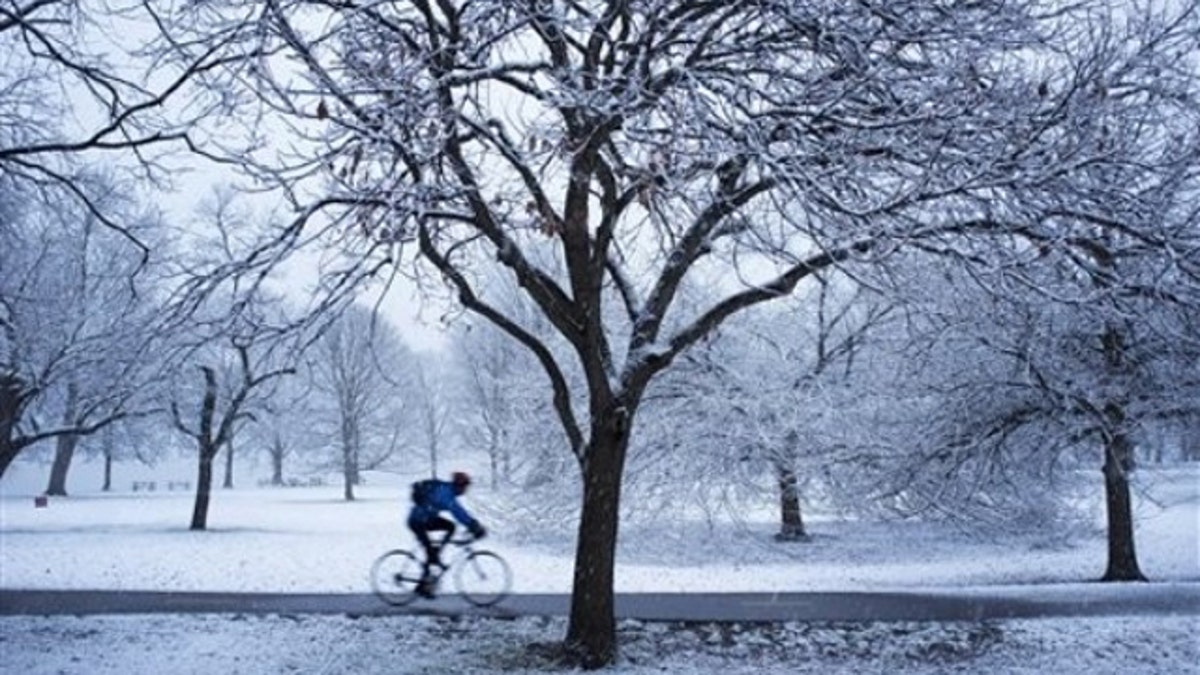
Rain of at least one inch pushed down voter turnout by 1 percent, while a inch of snow reduced turnout by half a percent. (AP)
The forecast for Tuesday’s Republican primary in New Hampshire calls for mostly clear skies and temperatures in the low 40s, but that likely won’t deter Granite State Republican voters from casting their ballots.
Weather can play a deciding factor in key races in some states, and GOP voters, in general, are a bit more motivated to make it to the polls than Democrats.
NEWS: How Politicians Dodge Questions
“Registered Republicans will come out and vote regardless of the weather,” said Andrew Smith, associate professor of political science and director of the University of New Hampshire Survey Center.. “They are going to vote because it’s a Republican primary, they’re excited about their candidate, and it’s the first vote against (President) Obama.
Smith said cold or snowy weather could keep more moderate, independent or Democratic voters at home. New Hampshire has an open primary, which means that anyone can vote regardless of party registration. That could also hurt a moderate GOP candidate such as Jon Huntsman.
While New Hampshire GOP voters may be hardier than most, experts say that weather can swing elections by suppressing or boosting turnout in pivotal states. Take the infamous Florida 2000 general election. Heavy rainfall in the Pensacola area kept many Democratic voters at home, according to Brad Gomez, associate professor of political science at Florida State University.
Gomez said that his predictions showed that if it had not rained that day, Democrat Al Gore would have won 2,000 more votes, which would have given him the state of Florida, and the 2000 election.
“Florida was so close,” said Gomez, who published a study on weather and voter turnout in a 2007 in the Journal of American Politics. “The bias is that when turnout gets depressed by weather, it tends to suppress peripheral voters who are sitting on the fence,” Gomez said. “Those voters tend to be Democrat. Some of it is socio-economic, and that it is harder to meet cost of voting. For example, some voters may feel ‘not only do I have to take the bus, but take the bus and stand in the rain. It’s not worth it anymore.’ ”
NEWS: E-Voting Gets Closer in 2012
Gomez’s study looked at 14 general elections and examined meteorological data from 22,000 U.S. weather stations. He and his colleagues found that rain of at least one inch pushed down voter turnout by 1 percent, while a inch of snow reduced turnout by half a percent.
That may not seem like much, a close general election usually turns on just a handful of counties in a handful of states.Gomez cited the 1960 general election between Richard Nixon and John Kennedy. Illinois voters woke up to remarkably clear weather and voted in high numbers. Had normal levels of rainfall occurred, Nixon would have won the state and become president.
While weather can make small shifts in voter turnout, Gomez says that a growing trend of early-voting -- now offered in 32 states and the District of Columbia -- may lessen its impact. Still, Gomez said, “in a close race, turnout matters.”
And, apparently, so does the weather.
